Colonoscopy
A colonoscopy is a minimally-invasive examination of the colon. It is a procedure used most often to screen for colon cancer and/or to identify and correct bleeding problems within the colon.
What is Colonoscopy?
Colonoscopy is a procedure in which a trained specialist uses a long, flexible, narrow tube with a light and tiny camera on one end, called a colonoscope or scope, to look inside your rectum and colon. Colonoscopy can show irritated and swollen tissue, ulcers, polyps, and cancerExternal Link Disclaimer.
How is virtual colonoscopy different from colonoscopy?
Virtual colonoscopy and colonoscopy are different in several ways. Virtual colonoscopy is an X-ray test, takes less time, and doesn’t require a doctor to insert a colonoscope into the entire length of your colon. However, virtual colonoscopy may not be as effective as colonoscopy at detecting certain polyps. Also, doctors cannot treat problems during virtual colonoscopy, while they can treat some problems during colonoscopy. Your health insurance coverage for virtual colonoscopy and colonoscopy may also be different.
Screening for Colon and Rectal Cancer
Your doctor will recommend screening for colon and rectal cancer at age 50 if you don’t have health problems or other factors that make you more likely to develop colon cancer.
Risk factors for colorectal cancer include
- Someone in your family has had polyps or cancer of the colon or rectum.
- A personal history of inflammatory bowel disease, such as ulcerative colitis and Crohn’s disease
other factors, such as if you weigh too much or smoke cigarettes. - If you are at higher risk for colorectal cancer, your doctor may recommend screening at a younger age, and you may need to be tested more often.
- If you are older than 75, talk with your doctor about whether you should be screened. For more information, read the current colorectal cancer screening guidelinesExternal Link Disclaimer from the U.S. Preventive Services Task Force (USPSTF).
Government health insurance plans, such as Medicare, and private health insurance plans sometimes change whether and how often they pay for cancer screening tests. Check with your insurance plan to find out how often your insurance will cover a screening colonoscopy.
Screening Colonoscopy vs Diagnostic Colonoscopy
If you are here today because you were sent by your physician for a “Screening Colonoscopy” or you have seen one of our providers and he/she recommends a colonoscopy, please read this form in its entirety. You need to be fully educated on the state and federal guidelines for reimbursement services.
The CMS “Preventative Screening” initiative passed in January, 2011 dictates that patients undergoing a “Screening Colonoscopy” will not be held to their coinsurance or deductible responsibilities.
The definition of a “Screening Colonoscopy” per CMS guidelines is as follows:
“A colonoscopy being performed on a patient who does not have any signs or symptoms in the lower GI anatomy PRIOP to the scheduled test.”
Any symptom such as change in bowel habits, diarrhea, constipation, rectal bleeding, anemia, ect. prior to the procedure and noted as a symptom by the physician in your medical record may change your benefits from a screening to a diagnostic colonoscopy.
Please Note: If you have had a colonoscopy within the last 10 years and the result indicated you had colon polyps, you are NOT eligible for a Preventative Screening Benefit. You have prior history of colon polyps. Your colonoscopy is now a “surveillance of the colon” and is considered diagnostic.
If you are under the age of 50 and are for screening colonoscopy, you may not be eligible for Preventative Screening Benefits. It is your responsibility to know your insurance policy. Please contact your insurance company with benefits questions prior to your procedure.
Please be advised that if during the procedure your doctor finds a polyp or tissue that must be removed for pathological testing, these specimens are NOT covered by the Preventative Screening Benefit and will be applied toward your deductible or coinsurance.
Expect to receive 3 or 4 bills for your procedure:
- Physicians Services
- Anesthesia
- Pathology
- Facility Fee
We make every effort to code correctly for your procedure with the correct modifiers and diagnoses. The correct coding of a procedure is driven by the physician and your medical history. It is not dictated by your insurance benefit or the insurance company.
How do I prepare for a colonoscopy?
To prepare for a colonoscopy, you will need to talk with your doctor, arrange for a ride home, clean out your bowel, and change your diet.
